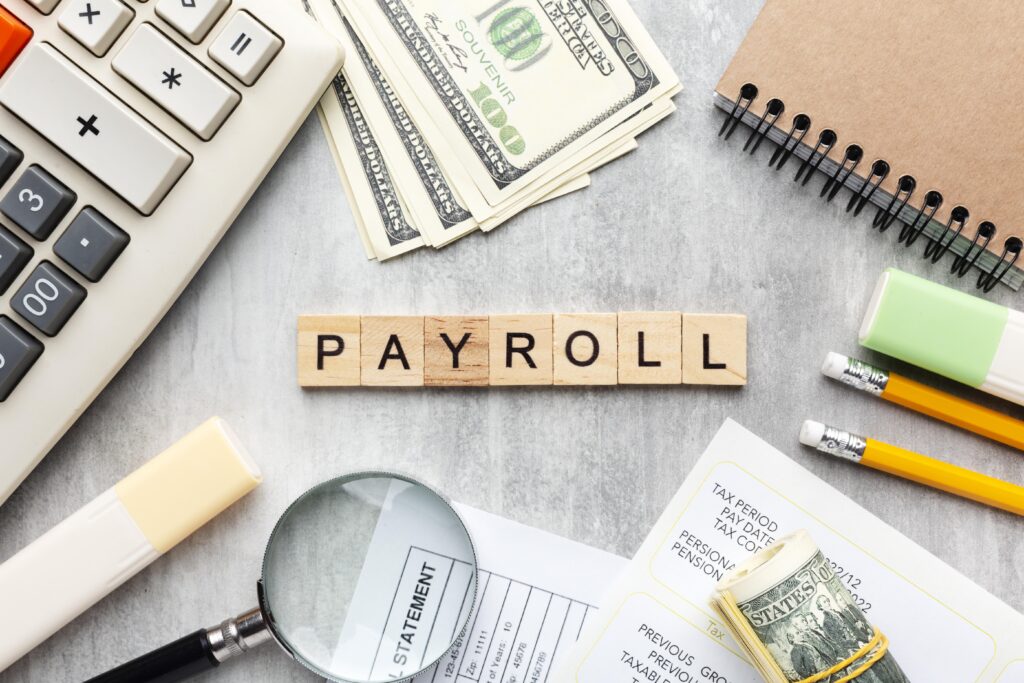Sole Proprietorship
Registration in India
Application submission

Transparent process through follow-up and regular updates

3 STEP simple process

⇓

⇓





What is a Sole Proprietorship?
When a business is owned and governed by one person, it is called a sole proprietorship company. This type of business can be incorporated in fifteen days and hence makes it one of the most popular types of business to begin in the unsystematic sector, specifically among merchants and small traders. For a Sole Proprietorship business, registration is not required as it is identified through alternate registrations, such as GST registrations. However, its liability is unlimited and it also doesn’t have perpetual existence.
Checklist Items for a Sole Proprietorship Registration
- A certificate/license issued by Municipal authorities under the Shop & Establishment Act.
- The license issued by Registering authorities like the Certificate of Practice is issued by the Institute of Chartered Accountants of India.
- The registration/licensing document is issued in the name of the proprietary concern by the Central Government or the State Government Authority/ Department, etc,
- The banks may also accept the IEC code (Importer Exporter Code) issued to the proprietary concern by the office of the DGFT as an identity document for opening of the bank account etc,
- Complete Income Tax return online (not just the acknowledgement) in the name of the sole proprietor where the firm’s income is reflected, duly authenticated and acknowledged by the Income Tax Authorities,
- The utility bills such as electricity, water, and the landline telephone bills in the name of the proprietary concern,
- Issue of GST Registration/Certificate.
Compliances Required For Sole Proprietorship Firm
Some of the compliances that apply to a sole proprietorship include the following:
- Income Tax Return Filing: The proprietorship’s business owner must submit a personal income tax return using form ITR-3 or ITR-4
- Business Income: Only the ITR-3 and ITR-4 income tax forms allow for the declaration of business income. As a result, in order to comply with income tax requirements, all proprietorships must submit forms ITR-3 or ITR-4
- GST Return Filing: If a proprietorship is registered for GST, a filing GST return each month and every three months in accordance with the business’s registration plan
- TDS Returns: Tax must be withheld at source and TDS returns must be filed quarterly if the proprietorship has employees or spends more than a specific amount on goods and services.
In addition to the mentioned points, the proprietorship may also need to comply with additional regulations according to its industry and region.
How ANBIFM Executes A Sole Proprietorship Registration Procedure?
Professional Guidance
Our experts give you professional guidance on many of the processes involved in registering your business as a sole proprietorship, along with registration of service tax, sales tax, import/export code, and professional tax.
Vendor Relationship
Our team will connect you with an established vendor who will book your application and also keep you updated on its status and progress. The vendors we have onboard are well-accomplished and skillful in managing native registrations.
15 Business Days
Our team will offer full assistance with the registration process. This could vary between 5 and 15 days, depending on the task at hand for the authorities involved.
Documents Required For Registering A Sole Proprietorship
To start a Sole Proprietorship, the following documents are required
- Address and identity proof
- PAN card, KYC documents and
- Rental agreement or sale deed (in case of Shops & Establishment Act Registration).
What Are The Documents Required For Opening A Current Account?
To open a current account, the following documents are required;
- Proof of the existence of your business
- Shops & Establishments Act Registration
- PAN card
- Address and Identity proof
Benefits of Sole Proprietorship Firm
Sole proprietorship is a popular form of business in which an individual owns and operates a business. Some of the benefits of a sole proprietorship firm are:
Easy to Set Up
Sole proprietorship firms are easy to set up and operate. There are no formalities to be followed for setting up a sole proprietorship firm, which makes it a popular choice among small business owners.
Full Control
The owner of a sole proprietorship firm has full control over the business. They are free to make decisions without any interference from others.
No Separate Legal Entity
A sole proprietorship firm does not have a separate legal entity from its owner. This means that the owner is personally liable for all the debts and obligations of the business.
Tax Benefits
Sole proprietorship firms are taxed as individual taxpayers, which means that the owner can claim deductions for business expenses and losses on their personal income tax return.
Minimal Compliance Requirements
Sole proprietorship firms have minimal compliance requirements compared to other forms of businesses. They are not required to maintain any formal records or hold annual meetings.
Flexibility
Sole proprietorship firms offer great flexibility to the owner in terms of operations, management, and decision making.
Low Cost
Sole proprietorship firms are cost-effective to operate as they do not have to pay for legal fees or comply with complex regulatory requirements.
Overall, a sole proprietorship firm is an ideal option for small businesses with minimal capital and limited liability.
Proprietorship Vs Limited Liability Partnership (LLP) Vs Company
| Features | Proprietorship | Partnership | LLP | Company |
|---|---|---|---|---|
| Definition | Unregistered type of business entity managed by one single person | A formal agreement between two or more parties to manage and operate a business | A Limited Liability Partnership is a hybrid combination having features similar to a partnership firm and liabilities similar to a company. | Registered type of entity with limited liability to the owners and shareholders |
| Ownership | Sole Ownership | Min 2 Partners Max 50 Partners | Designated Partners |
For One Person Company
|
| Registration Time | 7-9 working days | 7-9 working days | 7-9 working days | 7-9 working days |
| Promoter Liability | Unlimited Liability | Unlimited Liability | Limited Liability | Limited Liability |
| Documentation |
| Partnership Deed |
|
|
| Governance | – | Under Partnership Act | LLP Act, 2008 | Under Companies Act,2013 |
| Transferability | Non Transferable | Transferable if registered under ROF | Transferable | Transferable |
| Compliance Requirements | Income tax filing if turnover is more than ₹.2.5 lakhs | ITR 5 |
|
|
Why ANBIFM?
Access To Experts
We provide access to reliable professionals and coordinate with them to fulfil all your legal requirements. You can also track the progress on our online platform, at all times.
Realistic Expectations
By handling all the paperwork, we ensure a seamless interactive process with the government. We provide clarity on the incorporation process to set realistic expectations.
What People are Saying About ANBIFM
Static overlayZoya khan“Efficient and Knowledgeable Tax Consultants”
Rating: ★★★★☆
Static overlaySharad Yadav“A Partner in Financial Success”
Rating: ★★★★★
Static overlayVinod“Knowledgeable and Friendly Tax Professionals”
Rating: ★★★★☆
Static overlaySanjay Singh“Expert Tax Consultants You Can Trust”
Rating: ★★★★★
Static overlayGeeta Goyal“Top-Notch Tax Consultation Service”
Rating: ★★★★★
“Efficient and Knowledgeable Tax Consultants”
Rating: ★★★★☆
“A Partner in Financial Success”
Rating: ★★★★★
“Knowledgeable and Friendly Tax Professionals”
Rating: ★★★★☆
“Expert Tax Consultants You Can Trust”
Rating: ★★★★★
“Top-Notch Tax Consultation Service”
Rating: ★★★★★
Google Reviews
4.3/5 175+ Happy Reviews
FAQs on Easy Sole Proprietorship registration
Who can start a Sole Proprietorship?
Any Indian citizen with a current account in the name of his/her business can start a sole proprietorship. Registration may or may not be required, depending on the type of business that is planned to be established. However, to open a current account, banks typically require a Shops & Establishments Registration.
How long does it take to establish a business with a sole proprietorship?
What businesses are commonly run as Sole Proprietorships?
Most local businesses are run as sole proprietorships, from grocery stores to fast-food vendors, and even small traders and manufacturers. That is not to say that larger businesses cannot operate as sole proprietorships, they can! Jewellery shops are sole proprietors, but it is not recommended.
Aside from a current account, is there any need for any other registration?
This depends on the business you’re in. It is compulsory for any business whose turnover in a financial year exceeds ₹20 lakhs (₹10 lakhs in the case of North Eastern states) to get a GST registration. For businesses that are involved in selling goods or services to customers out of a commercial establishment, it is mandatory to register under Shops and Establishments Act.
Is it cheaper to run an LLP than a private limited company?
Yes, it is much cheaper to run an LLP than a private limited company. Mostly because compliances, such as an audit, apply to LLPs only after their turnover is sizable. Most LLPs spend about half as much as private limited companies, in their first year on registrations and compliance work.
What if I wish to convert from a sole proprietorship to a private limited company or partnership?
The procedure involved is a little tedious, but it is possible. It is very common for sole proprietors to convert into partnerships or private limited companies at a later stage of their businesses.
SOme TAXation certificate course

Financail Accountant Training

GST and Bookkeeping Training

Bookkeeping & Payroll Training

Assistant Accountant Training

Management accounting Training

Final Account Training

Auto cad Training

SEO Training

Web Desigining Training

Social Media Marketing Training
